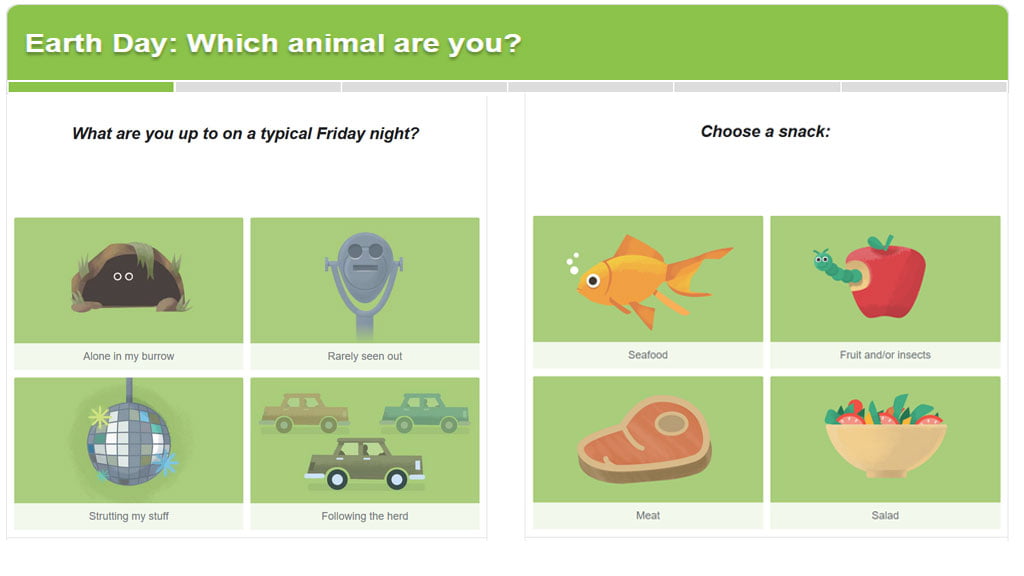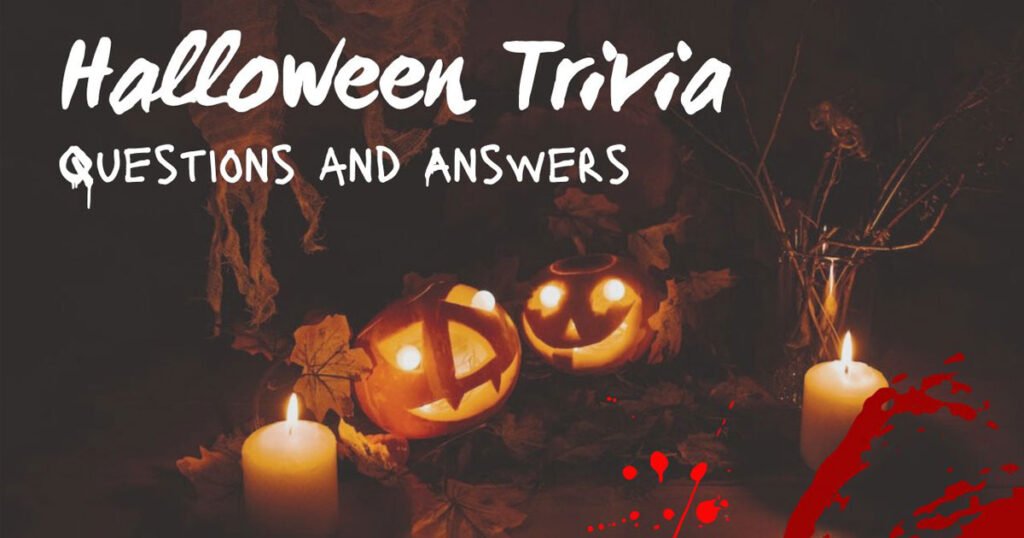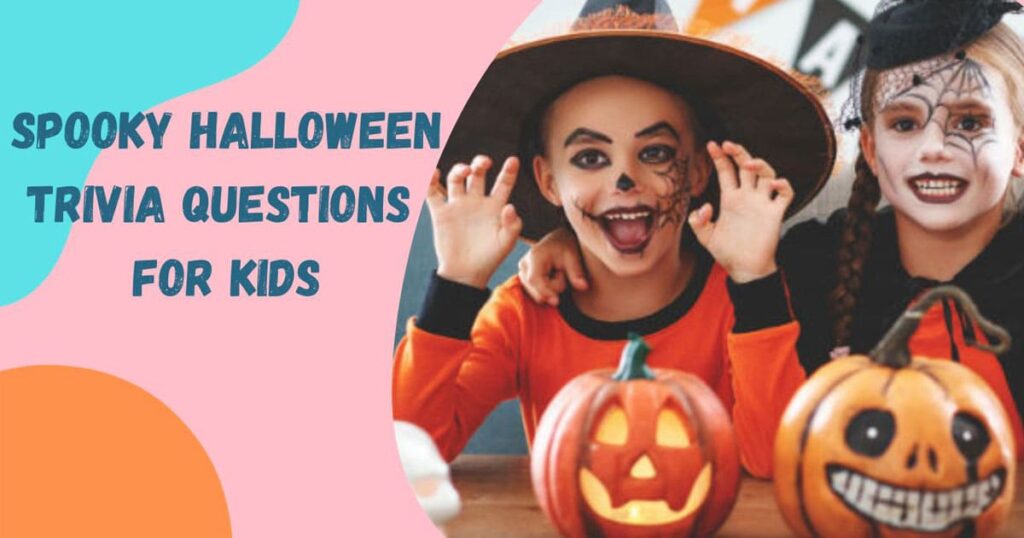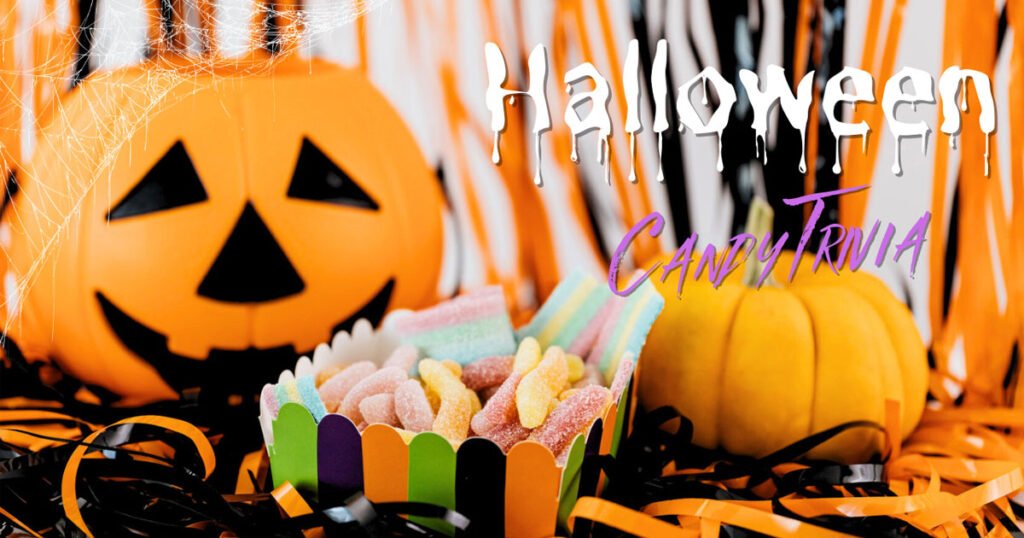Labor Day Trivia Questions And Answers: Labor Day honors the contributions of American workers and the labor movement. It became a federal holiday in 1894. Labor Day marks the unofficial end of summer and is associated with parades, barbecues, and public gatherings. The holiday also serves as a reminder of the importance of fair labor practices and workers’ rights.
Many people enjoy the long weekend by spending time with family and friends. Retailers often offer significant sales, making it a popular shopping holiday. Whether you spend it relaxing or participating in community events, Labor Day is a significant day to acknowledge the hard work and dedication of workers across the nation.
Labor Day History
Labor Day is a special holiday celebrated in the United States. It honors the contributions and achievements of workers. It’s also a great time to enjoy some fun trivia questions about its history. Let’s dive into the fascinating history behind Labor Day and discover some interesting facts!
Origins Of Labor Day
Labor Day has its roots in the labor union movement. It started in the late 19th century. Workers wanted better working conditions. They also wanted fair wages and reasonable hours. The idea of a special day for workers began to gain popularity.
Here are some key points about the origins of Labor Day:
- The First Labor Day Parade: On September 5, 1882, the first Labor Day parade took place in New York City. Thousands of workers marched to show solidarity.
- The Role of Labor Unions: Labor unions played a crucial role. They organized strikes and rallies to demand better working conditions.
- Peter J. McGuire and Matthew Maguire: These two men are often credited with proposing the idea of Labor Day. They were both labor activists.
- State Recognition: Oregon was the first state to make Labor Day an official public holiday in 1887. Other states followed soon after.
A table can help illustrate the early adoption of Labor Day by different states:
| State | Year |
|---|---|
| Oregon | 1887 |
| Colorado | 1887 |
| Massachusetts | 1887 |
| New Jersey | 1887 |
Key Historical Events
Several important events shaped the history of Labor Day. These events helped to cement its importance in American culture.
Here are some key historical events:
- Pullman Strike: In 1894, the Pullman Strike was a major event. Workers protested wage cuts and high rents in company towns. The strike led to widespread unrest.
- Federal Holiday: Following the Pullman Strike, President Grover Cleveland signed a law. This law made Labor Day a national holiday. It aimed to ease tensions with workers.
- Expansion of Labor Rights: Over the years, Labor Day became a symbol of workers’ rights. It marked progress in labor laws, including child labor laws and safety regulations.
- Labor Day Traditions: Parades, picnics, and speeches became common. These activities celebrated the contributions of American workers.
Labor Day is a reminder of the struggles and achievements of workers. It highlights the importance of fair labor practices. It’s a day to reflect on the progress made and the work still to be done.
Best Labor Day Trivia Questions And Answers
Here are 101 Labor Day trivia questions categorized into five sections: General Labor Day Facts, Historical Milestones, Labor Rights & Movements, Labor Day Celebrations, and Global Labor Day Traditions. Each category has its own set of trivia questions, complete with answers.
General Labor Day Facts
Q: When is Labor Day celebrated in the United States?
A: The first Monday in September.
Q: Which country was the first to celebrate Labor Day?
A: Canada.
Q: What year was the first official U.S. Labor Day celebrated?
A: 1882.
Q: Who is credited with proposing Labor Day as a holiday?
A: Peter J. McGuire.
Q: Which organization was instrumental in establishing Labor Day in the U.S.?
A: The Central Labor Union.
Q: What does Labor Day honor?
A: The contributions of American workers to the country’s strength, prosperity, and well-being.
Q: In which city was the first U.S. Labor Day parade held?
A: New York City.
Q: Which U.S. president signed Labor Day into law as a national holiday?
A: President Grover Cleveland.
Q: What year did Labor Day become a federal holiday in the United States?
A: 1894.
Q: True or False: Labor Day marks the unofficial end of summer in the U.S.
A: True.
More General Labor Day Trivia Question
Q: Labor Day is often associated with which outdoor activity?
A: Barbecues and picnics.
Q: What major event helped expedite the adoption of Labor Day as a national holiday in the U.S.?
A: The Pullman Strike.
Q: How long was the workday before the labor movement advocated for shorter hours?
A: 10 to 12 hours.
Q: True or False: The first Labor Day celebration involved a day of rest.
A: False (It involved parades and demonstrations).
Q: What color is traditionally avoided after Labor Day according to a fashion custom?
A: White.
Q: What other U.S. holiday shares a similar theme of honoring workers?
A: May Day (International Workers’ Day).
Q: Which labor leader once said, “Eight hours for work, eight hours for rest, and eight hours for what we will”?
A: Robert Owen.
Q: True or False: Labor Day is celebrated on the same day in all countries.
A: False.
Q: What is another term often used for Labor Day in many countries?
A: International Workers’ Day.
Q: Which state was the first to pass a law recognizing Labor Day?
A: Oregon.
Historical Milestones Labor Day Trivia Questions And Answers
Q: In what year did the U.S. Congress officially declare Labor Day a federal holiday?
A: 1894.
Q: The Haymarket Affair of 1886, significant to labor rights, took place in which U.S. city?
A: Chicago.
Q: What was the main goal of the labor movement in the 19th century?
A: To secure better wages, reasonable working hours, and safer working conditions.
Q: What tragic event in 1911 highlighted the need for labor reform and improved factory safety?
A: The Triangle Shirtwaist Factory fire.
Q: Which act, passed in 1938, established the 40-hour workweek in the U.S.?
A: The Fair Labor Standards Act.
Q: What is the term for workers joining together in a group to collectively bargain with their employers?
A: Unionization.
Q: What event in 1877 is known as the first nationwide strike in the U.S.?
A: The Great Railroad Strike of 1877.
Q: Who was the prominent labor leader and founder of the American Federation of Labor (AFL)?
A: Samuel Gompers.
Q: True or False: The American labor movement started after World War I.
A: False (It started much earlier in the 19th century).
Q: The Wagner Act of 1935 protected the rights of workers to do what?
A: To organize, join unions, and collectively bargain.
More Historical Milestones Trivia Question
Q: Which labor organization was formed by merging the AFL and CIO in 1955?
A: AFL-CIO (American Federation of Labor and Congress of Industrial Organizations).
Q: What is the significance of the Pullman Strike of 1894?
A: It led to the establishment of Labor Day as a national holiday.
Q: Which labor leader founded the United Farm Workers (UFW) and fought for farmworkers’ rights?
A: César Chávez.
Q: What major legislation was passed in 1947 to restrict the power of labor unions?
A: The Taft-Hartley Act.
Q: What labor movement event is commemorated by International Workers’ Day on May 1?
A: The Haymarket Affair.
Q: Who was the first woman to serve as U.S. Secretary of Labor?
A: Frances Perkins.
Q: What year did the U.S. Supreme Court uphold the eight-hour workday for railroad workers?
A: 1917.
Q: What was the name of the law passed in 1916 that was the first to limit the hours of labor for children?
A: The Keating-Owen Child Labor Act.
Q: What New Deal program in the 1930s provided jobs to millions of Americans during the Great Depression?
A: The Works Progress Administration (WPA).
Q: What landmark act was signed into law in 1963 to promote equal pay for women?
A: The Equal Pay Act.
Labor Rights & Movements
Q: What does the term “collective bargaining” refer to?
A: Negotiation between employers and a group of employees to determine conditions of employment.
Q: What is the primary goal of a labor union?
A: To protect and advance the rights of workers.
Q: True or False: Right-to-work laws prohibit requiring union membership as a condition of employment.
A: True.
Q: Who was the leader of the International Ladies’ Garment Workers’ Union (ILGWU) that advocated for improved labor conditions?
A: David Dubinsky.
Q: What is a “wildcat strike”?
A: A strike initiated by workers without union approval.
Q: What was the Industrial Workers of the World (IWW) commonly known as?
A: The Wobblies.
Q: What does the term “scab” refer to in labor terminology?
A: A worker who refuses to join a strike or replaces striking workers.
Q: What labor leader played a key role in the 1936-1937 Flint Sit-Down Strike?
A: Walter Reuther.
Q: What is the main purpose of a strike?
A: To protest working conditions, wages, or other labor disputes by halting work.
Q: What does OSHA stand for, and what is its function?
A: Occupational Safety and Health Administration; it ensures safe and healthy working conditions.
More Labor Rights & Movements Trivia Question
Q: What is a union shop?
A: A workplace where new employees must join the union within a certain time frame after being hired.
Q: True or False: The National Labor Relations Act is also known as the Wagner Act.
A: True.
Q: What was the name of the 1902 labor dispute between coal miners and mine operators in the U.S.?
A: The Anthracite Coal Strike.
Q: What act of 1932 limited the ability of courts to issue injunctions against nonviolent labor disputes?
A: The Norris-LaGuardia Act.
Q: Who led the Brotherhood of Sleeping Car Porters, the first African American labor union?
A: A. Philip Randolph.
Q: What is a grievance in labor relations?
A: A formal complaint filed by an employee or union regarding a violation of labor agreements.
Q: What was the main demand of the American labor movement in the early 20th century?
A: An eight-hour workday.
Q: What term describes the act of workers refusing to work and picketing outside their workplace?
A: A strike.
Q: True or False: Child labor was completely banned in the U.S. after World War II.
A: False (Child labor laws were established earlier, but restrictions evolved over time).
Q: What does the term “closed shop” refer to?
A: A workplace where only union members can be hired.
Labor Day Celebrations
Q: What is a common way Americans celebrate Labor Day weekend?
A: With barbecues, parades, and family gatherings.
Q: What major U.S. sport traditionally starts its season around Labor Day?
A: College football.
Q: What iconic event often takes place in New York City on Labor Day?
A: The West Indian Day Parade.
Q: In what year did Macy’s first hold its Labor Day fireworks display?
A: 1958.
Q: True or False: Many schools in the U.S. begin their academic year after Labor Day.
A: True.
Q: Which type of sales event is commonly held on Labor Day?
A: Retail sales.
Q: True or False: Labor Day is one of the busiest travel weekends in the U.S.
A: True.
Q: What is the significance of wearing white before Labor Day?
A: It was once a fashion rule symbolizing summer attire.
Q: Labor Day weekend is often associated with the final days of what seasonal pastime?
A: Swimming.
Q: Which industry often works through the Labor Day holiday due to demand for travel?
A: The airline and hospitality industry.
More Labor Day Celebrations Trivia Question
Q: What city is known for hosting one of the largest Labor Day parades in the U.S.?
A: Detroit.
Q: What event marks the start of the school year and coincides with Labor Day in New York City?
A: The West Indian Day Carnival.
Q: What is often regarded as the official end of the summer tourism season in the U.S.?
A: Labor Day weekend.
Q: True or False: Many labor unions organize parades and public speeches on Labor Day.
A: True.
Q: What is the significance of the Jerry Lewis MDA Labor Day Telethon?
A: It was a long-running charity event that raised money for muscular dystrophy.
Q: Which U.S. city is famous for its annual “Labor Day Carnival” celebrating Caribbean culture?
A: Brooklyn, New York.
Q: What was the original purpose of Labor Day parades?
A: To showcase the strength and spirit of labor organizations.
Q: In the early Labor Day celebrations, what activity followed the parades?
A: Picnics and public speeches.
Q: Which popular fast-food chain often uses Labor Day weekend to promote limited-time menu items?
A: McDonald’s.
Q: What common road condition occurs during Labor Day weekend?
A: Heavy traffic due to holiday travel.
Global Labor Day Traditions
Q: When is International Workers’ Day celebrated in most countries?
A: May 1st.
Q: True or False: Labor Day is celebrated on the same day in every country.
A: False.
Q: Which country was the first to celebrate International Workers’ Day on May 1st?
A: The United States.
Q: What is May Day also known as in Europe?
A: International Workers’ Day.
Q: Which country celebrates Labor Day on October 1st?
A: China.
Q: In which country is May Day a public holiday commemorating the Haymarket Affair?
A: Germany.
Q: True or False: Canada celebrates Labor Day on the same day as the U.S.
A: True.
Q: What is the name of the Labor Day celebration in Cuba?
A: Día Internacional de los Trabajadores.
Q: Which country marks May 1st as “Workers’ and Soldiers’ Day”?
A: North Korea.
Q: What significant labor event is associated with May 1st in the United Kingdom?
A: Workers’ rights marches.
More Trivia
Q: What city in the U.S. was central to the establishment of International Workers’ Day?
A: Chicago.
Q: Which Latin American country holds massive parades on May 1st to honor workers?
A: Brazil.
Q: What is the traditional activity associated with May Day in the United Kingdom?
A: Maypole dancing.
Q: What is celebrated on the first of May in Italy?
A: Festa dei Lavoratori (Labor Day).
Q: True or False: In Russia, May Day was once called “Day of International Solidarity of Workers.”
A: True.
Q: Which African country celebrates Labor Day on May 1st and calls it “Workers’ Day”?
A: South Africa.
Q: What labor-related protest in 1886 is associated with International Workers’ Day?
A: The Haymarket Affair.
Q: Which country was the first to recognize May Day as a national holiday?
A: France.
Q: In which country is International Workers’ Day celebrated with rallies and political speeches?
A: Spain.
Q: Which country combines Labor Day celebrations with a focus on the arrival of spring?
A: Sweden.
Q: True or False: Some countries have banned May Day celebrations at certain points in history.
A: True.
These trivia questions span the history, significance, and global traditions associated with Labor Day, making it both informative and fun for any quiz or learning session.
Labor Day Fun Facts
Labor Day is a special day to honor the contributions of workers. It’s also a time for fun trivia and interesting facts. Did you know there are many unusual ways people celebrate Labor Day? Let’s dive into some fascinating Labor Day Fun Facts!
Unusual Celebrations
Many people celebrate Labor Day in unique ways. Here are some unusual celebrations you might not know about:
- Sandwich Eating Contests: In some towns, people hold sandwich eating contests. Competitors try to eat as many sandwiches as possible in a short time.
- Hot Air Balloon Rides: Some places offer hot air balloon rides. It’s a fun way to see the beautiful fall landscape from above.
- Parades with a Twist: In certain cities, parades include floats made by local businesses. These parades can be very colorful and creative.
In addition to these unusual celebrations, some communities organize special events. Here’s a table of unique Labor Day events:
| Event | Description |
|---|---|
| Labor Day Luau | A Hawaiian-themed party with music, dancing, and traditional food. |
| Pet Parades | Parades where pets dress up in costumes and walk with their owners. |
| Historical Reenactments | Actors recreate important moments from labor history. |
Global Observances
Labor Day is not just an American holiday. Many countries around the world have their own ways to honor workers:
- International Workers’ Day: Celebrated on May 1st in many countries, this day honors workers and their rights.
- Canada: Canada celebrates Labor Day on the first Monday of September, just like the United States.
- Australia: Different states in Australia celebrate Labor Day on various dates. It depends on the region.
Let’s look at some countries and their unique Labor Day observances:
| Country | Date | Special Observance |
|---|---|---|
| United Kingdom | First Monday in May | Known as Early May Bank Holiday, marked with parades and festivals. |
| Japan | November 23rd | Called Labor Thanksgiving Day, it celebrates workers and their contributions. |
| Germany | May 1st | Known as Tag der Arbeit, features large demonstrations and public speeches. |
These global observances show the importance of workers worldwide. Each country has its own unique way to celebrate and honor labor.

Credit: www.pinterest.com
Frequently Asked Questions
What Is The Origin Of Labor Day?
Labor Day originated in the late 19th century. It was created to honor American laborers’ contributions. The first Labor Day parade was in New York City.
Why Do We Celebrate Labor Day In September?
Labor Day is celebrated in September to mark the end of summer. It was chosen by the Central Labor Union. They wanted a holiday between Independence Day and Thanksgiving.
What Activities Are Common On Labor Day?
Common Labor Day activities include parades, barbecues, and fireworks. Many people also enjoy outdoor activities. It is often seen as a day of rest.
How Does Labor Day Differ From International Workers’ Day?
Labor Day in the U. S. is in September, while International Workers’ Day is on May 1. The latter is celebrated worldwide. Both honor laborers but have different origins and traditions.
Conclusion
Labor Day trivia questions can make your holiday celebration more fun and engaging. Test your knowledge and learn new facts. Share these trivia questions with friends and family to spark interesting conversations. Enjoy your Labor Day while appreciating the history and significance of this important holiday.



